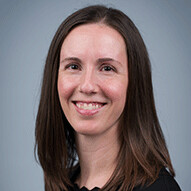Pediatric CAR T-cell therapy
CAR T-cell therapy is a new and innovative treatment that trains healthy cells in your child’s immune system to find and destroy cancer cells. CAR T-cell therapy may be an option for your child if traditional treatments (like chemotherapy) don’t put their leukemia in remission or if the cancer returns.
Since 2015, Children's Health℠ has been a national leader in CAR T-cell therapy, treating almost 100 patients. We have the experience needed to know when this therapy is right for your child, and to create a care plan that gives them the best chance for success. Our reputation and leadership in this field have drawn patients to our center from around the world.
What is pediatric CAR T-cell therapy?
T-cells are like the soldiers of our body’s immune system. Their job is to find things in our bodies that don’t belong – like viruses or bacteria and even cancer cells – and destroy them. But cancer cells look like normal cells, so our T-cells don’t recognize them as a threat.
To train the T-cells to better recognize cancer cells, a special man-made receptor (called a chimeric antigen receptor or CAR) is added to someone’s T-cells. Adding the special receptor to the cell takes place in a laboratory and is sometimes referred to as “reprogramming” the cell.
Our CAR T-cell therapy program was created through an affiliation with UT Southwestern and Children's Health. Physicians of the UT Southwestern Pediatric Group practicing in The Pauline Allen Gill Center for Cancer and Blood Disorders held leadership roles in the initial clinical trials that led to FDA approval of the first CAR T-cell therapy for pediatric leukemia. (This therapy is commonly referred to by the brand name KYMRIAH™).
Our reputation and leadership in this field have drawn patients to our center from around the world.
What are the benefits of pediatric CAR T-cell therapy?
Nearly 9 out of 10 children diagnosed with acute lymphoblastic leukemia (ALL) are successfully treated with chemotherapy. Before CAR T-cell therapy was introduced, there weren’t good alternative treatments when chemotherapy didn’t work for people. Unfortunately, the lack of other treatment options led to lower survival rates.
The development of pediatric CAR T-cell therapy has changed many of these outcomes. To date, about 85% of children who received KYMRIAH® for ALL (acute lymphocytic leukemia) go into remission. Nearly 70% are still in remission one year after receiving the treatment.
Children’s Health and UT Southwestern are actively researching how to make CAR T-cell therapy even more effective. We are also developing and testing new CAR T-cell therapies for other types of cancers that affect children.
How does pediatric CAR T-cell therapy work?
Here’s how CAR T-cell therapy works:
We use a procedure called leukapheresis to separate your child’s white blood cells (which include T-cells) from the rest of their blood. This takes between three and six hours and is done in our hospital.
In our lab, we separate the T cells from the rest of the white blood cells and then add new genetic information into the T-cells. This genetic information adds a receptor to the surface of the T-cells that enables the cells to find and attack the cancer cells.
The modified cells need 3-4 weeks to multiply so there are enough cells to fight the cancer.
The cells are infused into your child through an IV so they can go to work.
What are the side effects of pediatric CAR T-cell therapy?
Like every treatment for cancer, there are potential side effects and complications with CAR T-cell therapy. Our experience allows us to anticipate potential side effects, avoid them if possible, and manage them if they arise.
Common side effects include:
Difficulty breathing
Fever
Chills/shaking
Confusion
Severe nausea
Severe muscle or joint pain
Occasionally patients will experience more serious side effects, including:
Cytokine release syndrome, which can cause fever, chills, nausea, headache, low blood pressure, rapid heart rate and a skin rash
Neurotoxicity, which is when exposure to a toxic substance causes damage to the brain and nervous system. Symptoms can include:
agitation
delirium
headache
confusion
Serious allergic reactions
What are outcome metrics for pediatric CAR T-cell therapy at Children’s Health?
CAR T-cell therapy has been a life-changing advance for children, teens and young adults whose acute lymphoblastic leukemia (ALL) didn’t respond to traditional treatments or came back.
About 85% of the patients treated at Children’s Health have gone into remission after CAR T-cell therapy, and 65%-70% of them remained in remission after one year. These outcomes are as good or better than the national average.
What to expect with pediatric CAR T-cell therapy
At Children’s Health, we care for the whole child. We use a multidisciplinary team model with a goal of providing efficient and compassionate care.
We have been providing CAR T-cell therapy longer than any other pediatric medical center in our region. We have treated patients from infancy to age 25 with CAR T-cell therapy. We also have treated more pediatric patients with KYMRIAH than almost any other hospital in the U.S.
We are also the only site in North Texas that offers clinical trials of new cell therapies (which include CAR T-cell therapies) for children.
Our dedicated team supports and guides you step-by-step through the CAR T-cell therapy process.
You can expect:
Doctors and nurses who specialize in providing CAR T-cell therapy.
Advanced nurse practitioners who provide 24/7 care to patients in the hospital.
A nurse navigator to help schedule care and appointments.
Team members who work with your health insurance provider and provide financial counseling.
Social workers who help families secure lodging, food and transportation.
Child life specialists and pastoral care specialists who offer non-clinical support for the whole family.
The After Cancer Experience (ACE) team, which offers follow-up and long-term survivorship care.
What to expect before pediatric CAR T-cell therapy
Whether you are referred from your primary cancer doctor or find us on your own, we’ll work closely with you to make the process smooth and efficient.
The first step is to determine if CAR T-cell therapy is the right treatment for your child. There may be a different clinical trial or treatment options to consider.
Once your child’s treatment begins, our dedicated team will guide you through the entire multi-step process. Our focus is to keep your child as healthy as possible between collecting their T-cells and returning the modified cells to their body. During this period, a gentle form of chemotherapy is often used to control your child’s cancer.
You and your child will need to stay within an hour of our hospital for the first month so we can support your child and manage their health during this risk period for serious side effects.
What to expect during pediatric CAR T-cell therapy
For most patients, CAR T-cell therapy takes five weeks. This process typically includes:
Preparative chemotherapy, called lymphodepletion, to ready your child’s body for the new CAR T cells.
A hospital visit, to have the cells infused back into your child (which is like a blood transfusion).
Staying in or near the hospital, so our team can monitor the treatment and watch for side effects.
For most patients, CAR T-cell therapy is less intense than receiving chemotherapy or radiation.
What to expect after pediatric CAR T-cell therapy
Our team will follow your child closely for six months after CAR T-cell therapy. We will want to manage any side effects and monitor the effectiveness of the treatment.
During the initial recovery period of at least four weeks, you’ll need to stay within an hour of the hospital. It’s not uncommon for patients who have gotten CAR T-cell therapy to be readmitted during this time.
After six months, you and your family can decide where your child will get their long-term follow-up care. Many patients choose to receive their follow-up and survivorship care from our team. Others return to their original cancer doctors. We will partner with your original cancer doctor to ensure a seamless process if you choose to transition your care.
What questions should I ask my provider about pediatric CAR T-cell therapy?
How many patients have received CAR T-cell therapy at Children’s Health?
Will my child need to be hospitalized after receiving CAR T-cell therapy?
Are there other treatment options for my child?
What type of follow-up care will my child need?
How do you support families who are away from home during CAR T-cell therapy?
Pediatric CAR T-cell therapy doctors and providers
 Samuel John, MDPediatric Hematologist/Oncologist
Samuel John, MDPediatric Hematologist/Oncologist Mary Rachfal, APRN, PNP-ACNurse Practitioner - Cancer and Blood Disorders
Mary Rachfal, APRN, PNP-ACNurse Practitioner - Cancer and Blood Disorders